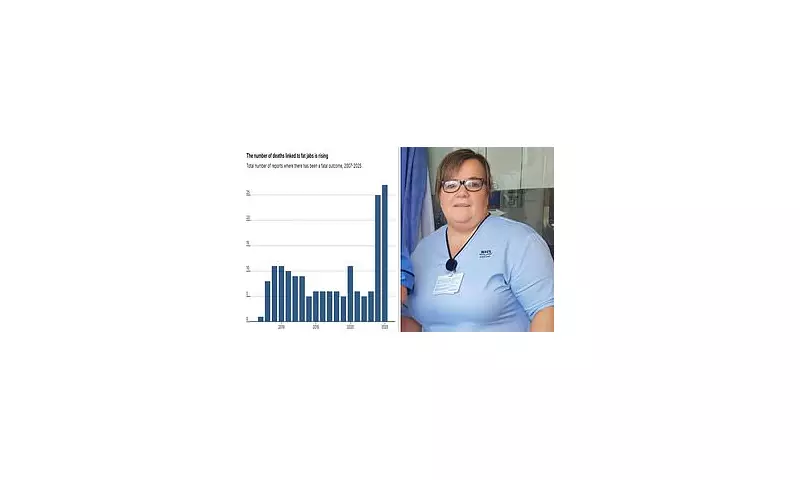
Dozens of deaths among middle-aged Britons have been connected to popular weight loss injections, an investigation can reveal. Amid soaring demand for drugs like Ozempic, Mounjaro, and Wegovy, UK drug safety watchdogs have received 52 fatal reports linked to GLP-1 injections since the start of 2024.
Alarm Over Rising Death Toll
Health experts are sounding the alarm over the death toll, warning that millions more are in line to receive the jabs to combat the nation's obesity crisis. Tam Fry, chair of the National Obesity Forum, stated that while these drugs are highly effective for those who genuinely need them, they are being used 'inappropriately' by slimmer adults who simply 'fancy losing a bit of weight'.
He issued a stark warning: 'If you take them and you don't need them, and you break the rules, you run the risk of serious complications – or death. People think "it's not going to happen to me" but it will happen to them.'
The data, maintained by the government's Medicines and Healthcare products Regulatory Agency (MHRA), does not specify whether the individuals who died were using the injections inappropriately. In total, the MHRA has received 173 'reports with fatal outcomes' connected to GLP-1 injections.
Understanding the Risks and Data
Reports of side effects have surged in parallel with prescriptions. Estimates suggest that 1.5 million people in the UK are now taking weight loss jabs through private online pharmacies, with an additional 200,000 receiving them via the NHS.
While milder side effects include headaches, vomiting, and diarrhoea, more serious complications can occur. These can involve gallstones, kidney stones, and inflammation of the pancreas, with some doctors warning of 'life-threatening complications'.
The MHRA's Yellow Card data shows that while two reported deaths were adults in their 20s, the majority were middle-aged. The breakdown is as follows:
- 8 deaths in people in their 30s
- 15 deaths in people in their 40s
- 37 deaths in people in their 50s
It is crucial to note that a report to the MHRA does not confirm the medicine caused the death; it only indicates a reporter's suspicion. Health chiefs warn that underlying illnesses or other medications could be responsible.
A Tragic Case and Calls for Control
The risks were tragically highlighted last year when Susan McGowan, a 58-year-old Scottish nurse, became the first person in Britain whose death was directly linked to a weight-loss jab. She suffered multiple organ failure, septic shock, and pancreatitis after taking just two low-dose injections of Mounjaro, which she purchased from an online pharmacy. Her death certificate listed 'the use of prescribed tirzepatide' as a contributing factor.
Experts are now calling for tighter restrictions on how these drugs are prescribed. Mr Fry lamented, 'It is a huge shame, as in my view Pandora's Box has been opened up. People can go on the internet and get it there, where people can lie about their weight.' He emphasised that these drugs must be used under professional supervision by those seriously ill with obesity.
The MHRA's Yellow Card scheme, established after the thalidomide scandal, allows for the reporting of adverse drug reactions. While the benefits of GLP-1 medicines are considered to outweigh the risks for their licensed uses, the agency and experts warn that the reported figures might only be 'the tip of the iceberg', as reporting is not mandatory.
A spokesman for the Department for Health stated: 'Weight loss drugs can be game changers in tackling obesity where diet and exercise has been tried first, but they are not a quick fix to lose a few pounds. These are licenced medicines and should only be used under medical supervision by those who are eligible.'






